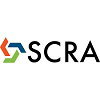
PART 3: SCRA’s entrepreneurial programs are among its best known
 (EDITOR’S NOTE: This is the third and final article in a multi-part series focused on SCRA, officially known as the South Carolina Research Authority. The state-chartered organization was established in 1983 to promote job creation in South Carolina’s innovation economy. SCRA’s impact on the state’s economy has averaged $688 million annually.)
(EDITOR’S NOTE: This is the third and final article in a multi-part series focused on SCRA, officially known as the South Carolina Research Authority. The state-chartered organization was established in 1983 to promote job creation in South Carolina’s innovation economy. SCRA’s impact on the state’s economy has averaged $688 million annually.)
By Tom Ballard, Chief Alliance Officer, PYA
Since many of our readers are either entrepreneurs or those involved in supporting start-ups, chances are the entrepreneurial programs of the South Carolina Research Authority (SCRA) are among its best known efforts.
SC Launch is the flagship program, providing mentoring, access to a network of business advisors, exclusive networking events like its “Launch and Learn” sessions, grants, and investments. The programs are delivered by SCRA, while the board of an affiliate – SC Launch, Inc. – makes the investment decisions and holds the associated equity.
Bob Quinn, SCRA’s Executive Director, says both the SCRA and SC Launch Inc. boards are united in one important consideration.
“We’re being measured by both boards on our ROI (return on investment),” he says. “We are putting more emphasis on our returns.”
As noted in Part 2 in this series, there are specific funding programs for academic entrepreneurs (e.g., “Academic Start-up Assistance Grants”), but SCRA and its SC Launch program also provide various types of funding for all entrepreneurs. They include:
- “Project Development Fund Grants” of up to $25,000 to assist a start-up in achieving critical milestones to successful commercialization (available to non-academic start-ups only);
- “Acceleration Grants” of up to $50,000 to help a company advance its commercialization efforts and, in turn, better position it for investment by SC Launch Inc (available to all entrepreneurs – both academic and non-academic); and
- A potential investment by SC Launch Inc. that typically is $200,000 per tranche, but may be higher (again, available to all entrepreneurs).
When he was named Executive Director three years ago, Quinn launched an enhanced set of services for industry.
“We want to be their technology scouts, understand their needs, and tap into the entrepreneurial and academic communities for solutions,” he says. After all, it’s about driving more innovation in the state.
The industry initiative includes: (1) demonstration grants that link an industrial partner and a smaller company (i.e., start-up) and/or academic institution in ways that lower the technical or business risks; and (2) relocation grants to help offset costs associated with moving a technology-based company to the Palmetto State.
Quinn cites another initiative to connect industry and start-ups. Called the “Tech Innovation Roadshow,” it was started in 2018 with Prettl International of Greenville as the launch customer. Seven companies with potential solutions for Prettl’s needs were invited to pitch, and two were selected for further discussions. One of those was subsequently invited to present to corporate leadership in Germany.
How successful is SC Launch? The results are impressive – more than one billion dollars in follow-on funding for companies that have received funding through the program.
“That’s more than a 20 to 1 leverage,” Quinn notes, adding that SCRA’s results are achieved with a staff of 35 across the entire organization, not just those focusing on SC Launch. Other data from its most recent annual report show 144 SC Launch companies received that follow-on funding with 40 percent in the life science sector, not quite a third in information technology, and the balance in advanced manufacturing and materials.
The SC Launch companies have also logged 132 issued or pending patents.
For the SCRA Executive Director, the results underscore an important conclusion. “We’re punching above our weight,” Quinn says.
Like what you've read?
Forward to a friend!

